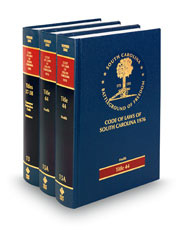



The goal of developing a legal collection for a non-law library should be to provide access to basic legal resources, both print and electronic, to help patrons research legal matters.
There are two types of legal resources —primary and secondary.
Primary sources are the actual laws themselves, i.e., the rules that tell us what we can and cannot do. The four primary sources are cases, statutes, regulations, and constitutions. These laws are issued by official bodies from the three branches of government.
Secondary sources are the books, articles, research guides, trial manuals, etc., that provide commentary or analysis of the law. They are not law, but explain the law and help researchers find primary sources.
An excellent legal collection would include a comprehensive set of both primary and secondary sources, but this simply is not possible for most libraries due to the enormous expense involved.
The good news is that primary sources, both state and federal, are becoming more available for free on the Web from reliable government websites (see Free Internet Legal Resources). At this point the collections typically include 10-15 years of basic resources without annotations, which should suit the needs of most patrons. Of course, researchers can still visit the USC law library for primary materials not available for free on the Web.
All South Carolina libraries should provide access to the South Carolina Code Annotated, which includes the U.S. and South Carolina constitutions and South Carolina statutes and regulations. Because the South Carolina Code is annotated, it also includes references to cases interpreting the constitutions, statutes, and regulations, several years of which can be accessed on the free web.
At a minimum, a comprehensive collection of less expensive current secondary sources tailored to the interests of your patrons will provide references to relevant laws on specific legal topics that can be accessed on the free web or at a local law library.
Below are several resources for legal research and citation, generally. The Legal Research by Topic page of this Circuit Riders guide includes links to suggested resources for researching common legal topics. Public Library Toolkits and research guides for specific states can also prove helpful to your patrons.
 South Carolina Code Annotated
South Carolina Code Annotated A Guide to South Carolina Legal Research and Citation by Paula Gail Benson
A Guide to South Carolina Legal Research and Citation by Paula Gail Benson South Carolina Jurisprudence
South Carolina Jurisprudence SC Lawyer
SC Lawyer